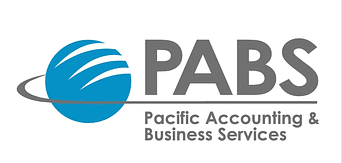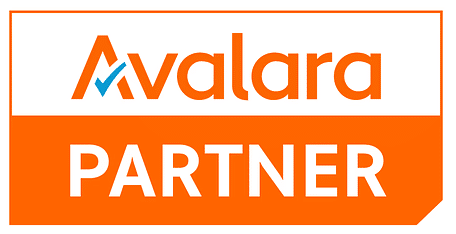What Is The Augusta Rule And How Do I Utilize It?
Small business owners are always looking for ways to improve their bottom line. One of those strategies is implementing tax-saving strategies. Have you heard of the Augusta Rule before? While it’s a lesser-known strategy, it can allow you to legally receive tax-free income by renting your personal residence to your business for legitimate use. Let’s take a look at how the Augusta Rule works, who qualifies for it, and how you can use it effectively. Our team at Flexkeeper is here to guide you along the way.
Understanding The Basics Of The Augusta Rule
This is named after Augusta, Georgia. During tournament season, many Augusta homeowners rent out their homes to visitors for short stays. The IRS responded by allowing homeowners to rent out their property for up to 14 days per year without having to report the rental income. This rule isn’t just for golf enthusiasts or professionals. Small businesses can apply this rule to their homes to their own businesses for business-related purposes. Some examples would include team strategy sessions or client appreciation events. For reference, this is all contained in IRS Section 280A most specifically subsection (g).
How The Augusta Rule Works For Small Business Owners
The Augusta Rule allows a business to rent a home from its owner (who also happens to be the business owner) for a short period, without triggering a tax event for the homeowner. This means your business can deduct the rental expense as a legitimate business cost, while you are not required to report the income on your personal taxes. It’s important that the rental rate is based on fair market value and that the event being held serves a clear business purpose. The Augusta Rule allows up to 14 rental days per year tax-free.
Who Qualifies to Use the Augusta Rule?
This strategy is especially appealing to owners of LLCs, S-Corps, or partnerships who also own a home or vacation property. Even solo entrepreneurs can use the rule if their business is formally structured and their home is used occasionally for genuine business activity.
Here are some basic qualifications for the Augusta rule:
- The home must be a residence you personally own, not a property held by your business. This is a common misconception for small companies.
- The total number of rental days in a calendar year must not exceed 14.
- The rental rate charged must reflect fair market value. I.e not an inflated or arbitrary amount.
- The event must serve a clear business purpose, such as meetings, planning sessions, or training days.
- Your business address cannot be the same as your home address.
It’s also important that your business and personal finances remain separate. The payment must be issued from your business account and recorded appropriately in your accounting system. Working with tax experts who understand business legalities can help you understand if you do indeed qualify for the Augusta Rule.
Documentation Is Critical When Applying The Augusta Rule
Like any other documents that deal with taxes or critical information, it’s imperative to document correctly when applying the Augusta Rule. If you were audited, the only way to backup your deductions would be with complete paperwork. Take into consideration what you need when you host events at your home. Create a formal rental agreement that outlines the date, time, rate, and purpose of the event. Issue an invoice from your business to yourself as the homeowner, and ensure the payment is processed separately from other compensation.
It would also be a good idea to maintain a record of meeting agendas, attendee lists, and any notes or minutes taken during the event. Even taking photos of the setup can help prove that a legitimate business function took place. The more organized you are regarding your business, the more peace of mind you’ll have in case of an audit situation.
How Can I Determine Fair Rental Value?
Do you want to know one of the most common mistakes when applying the Augusta Rule? Misjudging the rental rate. You can’t simply guess or inflate the amount to maximize your deduction. The rental fee needs to reflect what someone would reasonably pay to use a similar space for a similar event. Here’s a way to take this into consideration. You might look at local rates for hotel conference rooms, coworking spaces, or short-term rentals like Airbnb. If meeting rooms at a nearby business center rent for $400–$600 per day, you should stay in that general range. It could also depend on the amenities and space your home provides.
Some business owners work with a local real estate professional or financial advisor to conduct a fair market analysis. That extra step can add credibility to your claim and give you peace of mind when tax season rolls around.
Using The Augusta Rule With A Real-World Application
Imagine a successful entrepreneur, Sarah, who owns a thriving tech startup. To balance her work-life commitments and generate some extra income, she decides to rent out her primary residence for a few weekends each summer. Utilizing the Augusta Rule, she lists her beautifully decorated home on a short-term rental platform during a popular local festival.
During those two weekends, Sarah charges $500 per night, making a total of $7,000 in tax-free rental income. This unexpected financial boost not only helps cover her summer vacation expenses but also allows her to reinvest in her business without the burden of extra taxes. By strategically using the Augusta Rule, Sarah maximizes her financial opportunities and maintains her privacy and personal space when she’s not renting. This shows how savvy homeowners can turn their properties into profitable assets while staying compliant with tax regulations.
Is The Augusta Rule Worth It?
It’s always good to save money for your business whenever possible. Individuals who host occasional business events at home and want to optimize tax strategy can surely benefit from the Augusta Rule. When executed correctly, it allows your business to reduce its taxable income while you (as the homeowner) benefit from tax-free earnings. Below are some other situations of who it would benefit.
- Those with a formal business structure (S-Corps or LLCs)
- Own a qualifying home or secondary residence
- Occasionally hold legitimate business functions at home
- Want to reduce taxable income without adding complexity to their filings
Let Flexkeeper Help You Implement the Augusta Rule
At Flexkeeper, we specialize in helping small business owners understand the tax code and make it work for their advantage. Our team offers expert guidance in financial planning, bookkeeping, and tax strategy. You don’t have to navigate these opportunities alone.
If the Augusta Rule sounds like something your business could benefit from, let us help you implement it the right way. We’ll walk you through the requirements, determine a fair rental value, and help set up the documentation needed to stay compliant. Ready to find hidden tax-saving opportunities for your business? Contact Flexkeeper today and schedule your personalized consultation.










